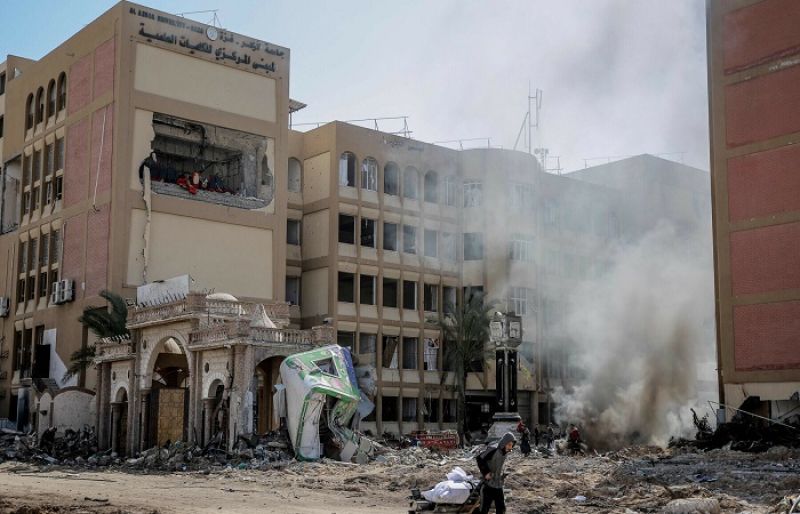The United Nations Security Council is likely to vote on Tuesday on an Algerian push for the 15-member body to demand an immediate humanitarian ceasefire in the Gaza war, said diplomats, a move the United States signaled it would veto.
Algeria had put forward an initial draft resolution more than two weeks ago. But US Ambassador to the UN Linda Thomas-Greenfield quickly said the text could jeopardize “sensitive negotiations” aimed at brokering a pause in the war.
However, Israeli Prime Minister Benjamin Netanyahu has already rejected the international calls to stop the aggression on Rafah, the last refuge of millions of displaced Palestinians. Netanyahu insisted the operation would go ahead regardless of whether prisoner swap deal is reached.
Algeria requested on Saturday that the council vote on Tuesday, diplomats said. To be adopted, UN Security Council resolution needs at least nine votes in favour and no vetoes by the United States, Britain, France, China or Russia.
“The United States does not support action on this draft resolution. Should it come up for a vote as drafted, it will not be adopted,” Ambassador Thomas-Greenfield said.
The US, which traditionally shields Israel from UN action, has already twice vetoed UNSC action over the past four months.
“The situation in Gaza is an appalling indictment of the deadlock in global relations,” UN Secretary-General Antonio Guterres told the Munich Security Conference on Friday.
When asked to explain, UN spokesman Stephane Dujarric said Guterres was “pointing the finger” at the lack of unity in the Security Council “and how that lack of unity has hampered our ability … to improve situations around the world.”
As talks between the US, Egypt, Israel and Qatar are on to seek a “pause” in the war and the release of prisoners, Thomas-Greenfield said: “It is critical that other parties give this process the best odds of succeeding, rather than push measures that put it — and the opportunity for an enduring resolution of hostilities — in jeopardy.”
The likely council vote comes as Israel to storm Rafah in southern Gaza, where millions of Palestinians have sought shelter, prompting international concern that such a move would sharply worsen the humanitarian crisis.
Egypt, which controls the Rafah border crossing from Gaza, has repeatedly warned against any “forced displacement” of Palestinians into the Sinai desert. In a phone call, French President Emmanuel Macron and President Abdel Fattah al-Sisi agreed on the “necessity of the swift advancement of a ceasefire”.
Death toll rises to 28,985
At least 28,985 people, mostly women and children, have been killed by Israeli forces in air strikes and ground offensive in Gaza during the past four months only, according to the Palestinian health ministry.
The Hamas demands, which include a complete end to fighting, the release of prisoners and the withdrawal of Israeli troops from Gaza, have been rejected by Netanyahu calling the same “ludicrous”.
While Qatari Prime Minister Mohammed bin Abdulrahman Al-Thani at the Munich Security Conference called those talks “not very promising”, US Ambassador to the UN said the resolution demanding immediate ceasefire could jeopardize “sensitive negotiations” aimed at brokering a pause in the war.


